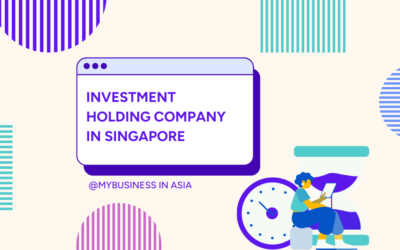
Sole proprietorship and private limited company in Hong Kong have several differences, but also similarities. We will tell you here everything you need to know about these two entities, in details, in order to make the right decision !
DEFINITION
A sole-proprietorship is an unincorporated business which does not have any ‘’legal personality’’, as compared with a private limited company, which has its own legal personality upon its incorporation at the Companies Registry.
A sole-proprietorship is conducted by one person only, i.e. the sole-proprietor. No other investors can ‘’invest’’ into the business. In comparison, a private limited company may have up to 50 shareholders, who are able to contribute to the share capital of the company.
While the sole-proprietor gets all the profits accruing from the business, he is wholly and personally liable for the debts incurred in the business and must take up all the risks inherent in the conduct of such activity.
On the other hand, shareholders in a private limited company are liable only to the extent of their initial investments/contributions into the company.
The main differences between a sole-proprietorship and a limited company are set out below:
|
Sole-proprietor |
Private limited company |
|
|
Legal personality |
NO (unincorporated business) |
YES (incorporated business) |
|
Member |
One= sole proprietor |
Several=up to 50 shareholders |
|
Liability |
Unlimited & Personal |
Limited liability |
PROS & CONS
Below is a table that sets outs the pros and cons of a Sole Proprietorship:
|
Advantages |
Disadvantages |
|
Easy to set up: the investor only needs to apply for a business licence within 1 month of the commencement of such business. No administrative formalities required with the Companies Registry (during and after the set up process) |
Unlimited & personal liability = risky business as the sole proprietor is the only responsible person for all liabilities in the business. |
|
Efficiency in the decision making process: a sole proprietor does not need to get approval from other business partners/investors |
Losses: the sole proprietor must bear all the potential losses/failures of his business. |
|
No profits sharing |
Source of finance: the sole proprietor must contribute to the working capital all by himself (no other investors can invest into the business). This could be a potential financial limitation to start or expend the business. |
TAXATION
Same general taxation principles apply for both sole-proprietorship and private limited companies in Hong Kong:
- Territorial source principle;
- No distinction between residents and non-residents;
- Only income which has a source in Hong Kong is taxable here; and
- Income sourced overseas, even if remitted to Hong Kong, is not charged to profits tax.
A sole-proprietorship carrying on a trade or business in Hong Kong is liable to profits tax at a rate of 15%.
In addition, the Inland Revenue (Amendment) (No. 7) Bill 2017 was gazetted on 29 December 2017, introducing a new 2-tiered profits tax regime
.
The first 2 million HKD of profits will be taxed at half of the current tax rate (i.e. 7.5%), while the remaining profits thereafter will be taxed at the existing 15%.
Below is a comparative table between a sole proprietorship and a private limited company (from a profit tax perspective):
| Tax rate | ||
| Assessable profits | Corporations (private limited company) | Unincorporated businesses (including sole-proprietorship) |
| First 2 million HKD | 8,25% | 7,5% |
| Above 2 million HKD | 16,5% | 15% |
ACCOUNTING & BUSINESS RECORDS
A sole proprietor is not required to prepare audited accounts, where all private limited companies incorporated in Hong Kong have the statutory obligation to prepare audited accounts.
Nevertheless, sole proprietor shall keep sufficient records of his income and expenditures in order to assess the taxable profits. Such records include sales records, purchase/expenses records, bank statements, assets, cash received/expended etc.
For both sole proprietorship and private limited company, business records must be kept for a minimum period of 7 years after the date of the transaction to which they related.
|
Sole-proprietor |
Private limited company |
|
|
Audited accounts |
NO |
YES |
|
Business Records |
YES |
YES |
STATUTORY RETURNS
|
Sole-proprietor |
Private limited company |
|
|
Profits Tax return |
YES |
YES |
|
Employment return |
YES |
YES |
|
Annual Return |
NO (but the sole trade will need to notify the IRD of any change of business registration particulars) |
YES |
If you appreciate our content, you’ll love the stuff we share on LinkedIn and Facebook. Join the conversation with us !
If you need to register your business, open a new branch or subsidiary. Of if you are looking for more specicif services like bookkeeping services or withholding tax informations, you can contact us here.
Do you want to register your business in Hong Kong ? Please do not hesitate to contact us if you have any further questions.


